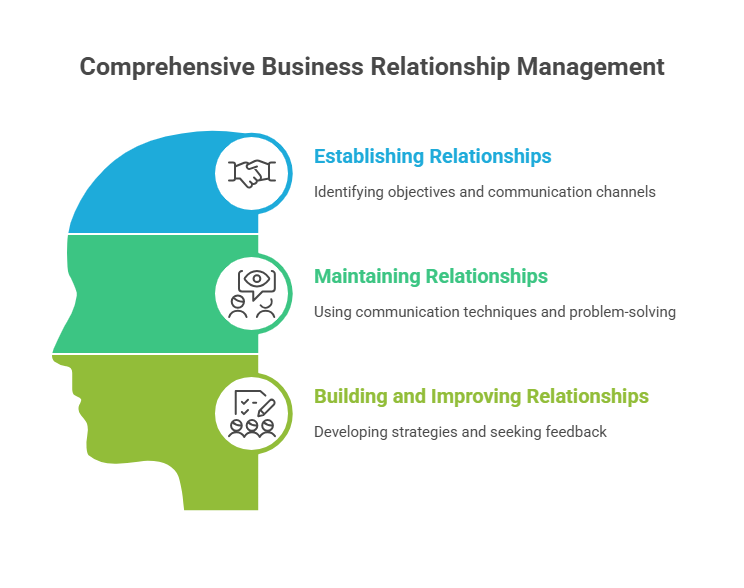The Importance of Professional Networks in Building and Maintaining Business Relationships
Posted by SkillMaker in Oct, 2025
What is a concise description of professional networks in building and maintaining business relationships?

Professional networks refer to an interconnected group of people with whom you build long-term, mutually beneficial associations that support career and business growth. They encompass relationships with industry peers, mentors, clients, and businesses that can provide guidance, resources, and opportunities.
Listen to this article as a podcast
Why do people in the Public sector industry need professional networks when building and maintaining business relationships?
Individuals in the Public sector industry need professional networks to ensure that they remain informed and connected within their fields. Such networks facilitate access to valuable information, support collaboration across sectors, enhance career development, and support the achievement of organisational goals through shared knowledge and partnerships.
“Building professional networks fosters resources exchange, creates opportunities for collaboration, and strengthens ties across industries, enhancing both career progression and business success.”
What are the key components or elements of professional networks in building and maintaining business relationships?
Key elements of professional networks include:
- Trust: Building reliable relationships based on integrity and credibility.
- Communication: Maintaining open and consistent dialogue.
- Mutual Benefit: Establishing networks that bring value to all parties involved.
- Diversity: Involving a range of individuals from various industries and backgrounds.
- Engagement: Actively participating in networking opportunities and events.
What key terms, with descriptions, relate to professional networks in building and maintaining business relationships?

Registered Trademark“®”
- Networking Events: Structured occasions to expand your professional circle, such as conferences, seminars, or industry meetups.
- LinkedIn: A social media platform designed for professional networking and career development.
- Mentorship: A developmental relationship in which a more experienced or knowledgeable person helps to guide a less experienced person.
- Collaborative Partnerships: Long-term alliances that create shared opportunities for growth and development.
- Referral Networks: A system of mutual referrals that can lead to business opportunities.
Who is typically engaged with operating or implementing professional networks in building and maintaining business relationships?
Various roles are commonly involved in operating professional networks, including business development managers, public relations officers, social media managers, entrepreneurs, and corporate leaders. These individuals are key facilitators of network growth and relationship management within their respective sectors.
How does professional networks in building and maintaining business relationships align or integrate with other components of the Public sector industry in Australia?

Professional networks in the Public sector are crucial for integrating various components such as policy development, community engagement, and inter-agency cooperation. These networks support policy implementation by enabling information sharing and resource pooling, thereby promoting harmonious organisational functioning and advancing public interests.
Where can the student go to find out more information about professional networks in building and maintaining business relationships?
What job roles would be knowledgeable about professional networks in building and maintaining business relationships?
Roles that typically possess knowledge in professional networking include:
- Business Development Managers
- Public Relations Officers
- Social Media Managers
- Corporate Executives
- Entrepreneurs
What are professional networks in building and maintaining business relationships like in relation to sports, family, or schools?

In sports, leveraging professional networks is comparable to forming a cohesive team through strategic alliances and joint efforts for success. Within a family context, it mirrors creating a strong support network of friends and relatives that nurture growth and resilience. When related to schools, it is similar to building a network of educators and alumni who can offer guidance, mentorship, and resources to enhance academic and career prospects.
(The first edition of this post was generated by AI to provide affordable education and insights to a learner-hungry world. The author will edit, endorse, and update it with additional rich learning content.)
(Skillmaker – 2025)

 Post Tagged with
Post Tagged with